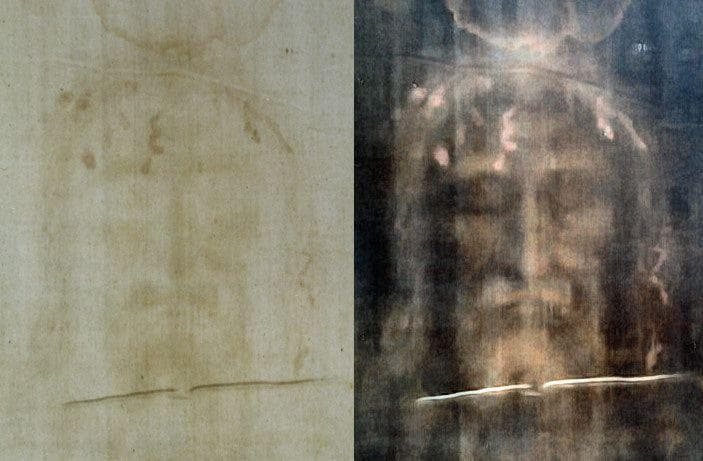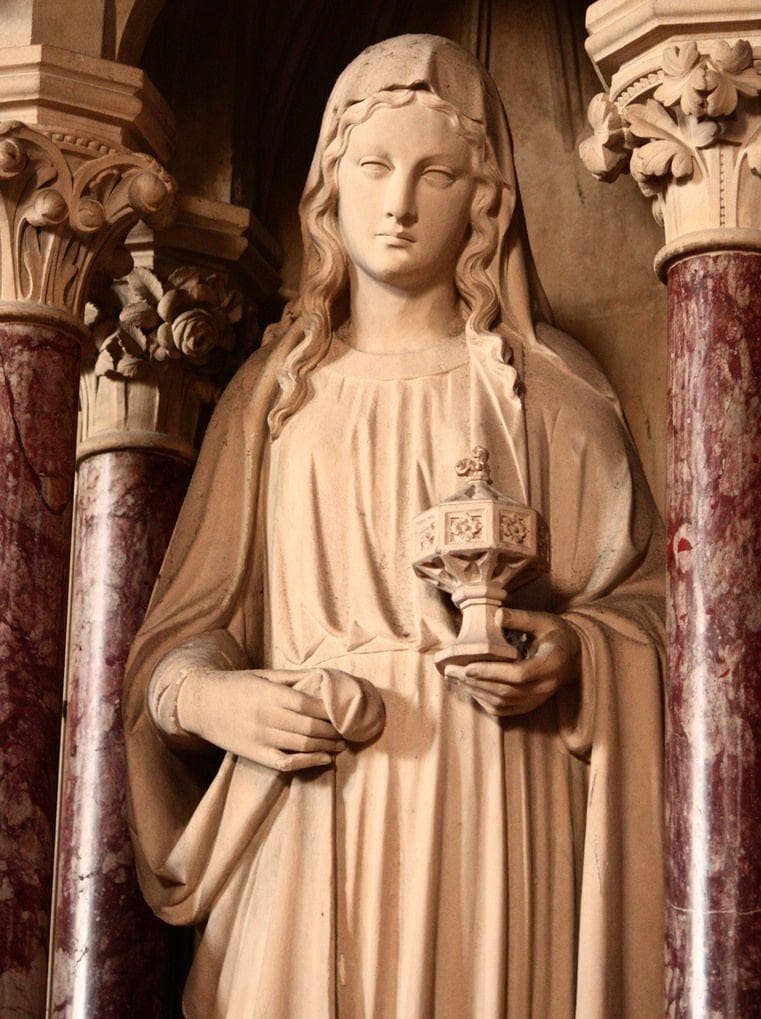-
(#1) The Harrowing Took Place Between Jesus' Passing And Resurrection
Before we delve into the Harrowing, let's first define the timeline. The Gospels of Matthew, Mark, Luke, and John are the Bible's official accounts of the life and passing of Jesus Christ. And while they differ from each other on many of the details (which has lead to endless debate over the past two millennia), all four Gospels agree on a basic set of facts: Jesus was hung on the cross on Good Friday and expired at 3 pm. Joseph of Arimathea arranged for Jesus to be interred in a tomb that same day. On Sunday, one or more of Jesus' female followers visited the tomb and discovered that Jesus had been resurrected.
This leaves a chronological gap between Jesus' passing and his resurrection. What did he do in between? According to contemporary first-century Judaic theology, all humans have a soul that goes to the afterlife after they expire, which then awaits the final judgment. Since he was both the son of God and mortal, Jesus was no exception. But unlike other mortals, Jesus' journey to the afterlife had a more specific purpose.
-
(#8) Certain Denominations Disavow The Tale Precisely Because The Bible Makes Little Mention Of It
While Catholic theology explicitly recognizes the Harrowing, plenty of branches of Christianity do not. The 13th-century Catholic theologian Thomas Aquinas describes Jesus' descent into hell in detail in his Summa Theologiae. However, while Aquinas does write that Jesus went to hell to teach his gospel, he argues that it didn't ultimately save anyone. According to Aquinas, a person's soul becomes fixed at their passing and repenting is no longer possible in the afterlife. This text laid the groundwork for future rejections of the Harrowing.
In the 16th century, Protestant reformer and theologian John Calvin argued that Jesus never actually visited hell. Instead, the story is an allegory that symbolizes his suffering on the cross. Additionally, Calvin believed a person's redemption or damnation was fixed at birth, so it would have been impossible to save anyone from hell regardless of whether or not they had the chance to hear Jesus' message.
Also in the 16th century, Protestant reformer Martin Luther posited that the Harrowing was allegorical instead of literal. Luther was skeptical of the Catholic vision of hell, and even took things one step further by denying that places like limbo and purgatory even exist. He described the latter two realms as "figments of some stupid and bungling sophist."
Today, most mainstream Protestant religions do believe that Jesus really did go to hell after his passing - but whether they believe it literally or metaphorically depends on the denomination.
-
(#10) The Harrowing Was The Subject Of Numerous Medieval Plays
One way the Christian church spread its message was through the use of "liturgical plays," or dramas depicting stories from the Bible or the lives of the saints. These weren't usually part of a typical church service, but instead were performed for the general public.
The Harrowing of Hell was frequently depicted in these plays. The earliest discovered liturgical play, The Harrowing of Hell, comes from a ninth-century Anglo-Saxon text called The Book of Cerne, and it's believed to be the earliest dramatic work ever produced in England.
Liturgical dramas were most popular in the 12th and 13th centuries. In plays about the Harrowing of Hell, Jesus is often depicted not as a peaceful teacher, but as a confident warrior-king who triumphs over evil and rescues Adam and Eve.
-
(#12) Even Today, Scholars Debate The Harrowing’s Meaning And Whether It Should Be Accepted As Canon
Even today, the status of the Harrowing is by no means settled. Modern theologians still debate what it means, and even whether it should be believed at all.
The controversial Swiss theologian and priest Hans Urs von Balthasar rejects the traditional Catholic interpretation of the Harrowing in his 1970 book Mysterium Paschale. Whereas traditional theology views Jesus' ordeal on the cross as his atonement for mankind's sins (and his descent into hell as a triumphant announcement to the souls who passed before him), von Balthasar argues that the Harrowing is itself the final act of atonement.
In von Balthasar's version, Jesus' descent was a final act of damnation that had to happen before he could be resurrected. It is not so much a triumph as the low point of his suffering.
In 1991, theologian and president of the Evangelical Theological Society Wayne Grudem argued in his textbook Systematic Theology that, due to the lack of Biblical evidence, the Harrowing should be deleted from the Apostles' Creed entirely. "The single argument in its favor seems to be that it has been around so long," he writes. "But an old mistake is still a mistake."
-
(#11) Author C.S. Lewis Was A Passionate Believer In The Harrowing
Today, C.S. Lewis is known as the author of classic works like The Chronicles of Narnia and The Screwtape Letters. He was also a devout Christian and amateur theologian, which shouldn't surprise anyone familiar with the themes in his books.
When Lewis was active in the 1960s, a major school of contemporary thought rejected the ideas of heaven and hell as purely fictional. To Lewis, heaven and hell were real places, and essential to his version of Christianity. Hell is necessary as a consequence for non-belief, Lewis believed. Or, in other words, "If a game is played, it must be possible to lose it."
The concept of the Harrowing of Hell was central to Lewis's theology. To Lewis, the Harrowing of Hell episode is the entire basis for the possibility of eternal life. In a letter to friend Mrs. Sutherland, Lewis wrote:
The New Testament always speaks of Christ not as one who taught, or demonstrated, the possibility of a glorious after life but as one who first created the possibility - the Pioneer, the First Fruits, the Man who forced the door. Now, with Jesus’ completed work, he has made a way, prepared a home, made many mansions for us.
-
(#3) The Harrowing Details Jesus Descending Into Hell To Save The Souls Of Those Who Perished Before Him
While branches of Christianity differ on the specifics, the main draw for followers of Jesus is that accepting his teachings and repenting for their sins guarantees salvation. Moreover, salvation is only available to people who accept him.
According to this theology, the arrival of Jesus on Earth was a game-changer for people alive at the time, and for everyone who has lived after. But it also creates a problem: What about the people who lived before Jesus' birth, souls who never had the chance to learn his teachings?
The Harrowing is a theological solution to this problem. Rather than waiting for eternity, the souls of everyone who predated Jesus were saved when he visited hell before his resurrection.
The use of the word "harrowing" to describe this event might be confusing to modern readers. Here, the word "harrowing" does not mean "distressing" like we would use it today. Instead, it's rooted in an Old English word that means "to break the ground in preparation for planting." In other words, Jesus' harrowing was a means of preparing the souls of the afterlife for their eternal salvation.
New Random Displays Display All By Ranking
About This Tool
The Bible records that Jesus ascended to heaven on the fortieth day after his resurrection. Any interpreter admits that this is the most difficult passage in the New Testament. The interpretation of hell in Christian doctrine is terrible. In different biblical stories, Jesus entered hell before he was resurrected and ascended to heaven. But this is not the hell story that most of us Christians are familiar with.
Few Christians have heard of the religious stories of Jesus descended into hell and cleaned house for the lord. The random tool explained 12 details about what happened after Jesus perished on Good Friday.
Our data comes from Ranker, If you want to participate in the ranking of items displayed on this page, please click here.














